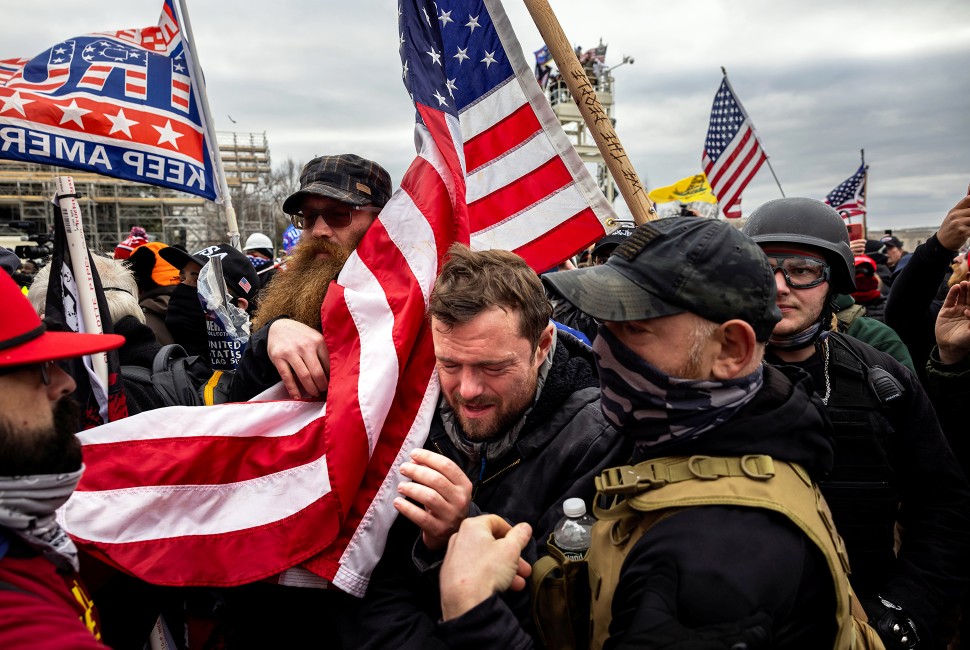The Waco, Texas, standoff. The Oklahoma City bombing. The Jan. 6 attack on the U.S. Capitol. Frequently discussed as isolated occurrences, each of these violent events are part of America’s centuries-long struggle to build a multi-racial democracy.
Public testimony and recent articles by Northwestern history faculty provide a historical context for paramilitary attacks against the government by white power groups.
Northwestern Now asked a series of questions and gathered the following excerpts from recent articles by Kathleen Belew, Kevin Boyle, Daniel Immerwahr and Kate Masur, all faculty members in Weinberg College of Arts and Sciences.
Is there a catalyst behind the increase in militarized attacks against the government?
“Waco was especially meaningful to the paramilitary movement. Between 1993 and 1995, more than eight hundred militias and Patriot groups formed. These groups, important vehicles for white power, differed from the mixed-race and Israel-sympathizing Branch Davidians. Still, Waco (along with Ruby Ridge) was their rallying cry, incorporated into calls for a race war and for attacks on the state. An undercover agent working among them recalled, ‘There was hardly one militia member I met who didn’t mention Waco as his awakening,” wrote Daniel Immerwahr in a New Yorker book review of Jeffrey Toobin’s “Homegrown.” Focused on the parallels between the Oklahoma City bombing by Timothy MacVeigh and the Jan. 6 attack, Toobin expands on the ideas put forth in Kathleen Belew’s 2018 book on the white power movement.
What compels individuals with extreme ideology to commit acts of violence?
“As a historian of American social movements, I’ve found that the perpetrators of violence tend to be pulled along not by ideas alone, as compelling as these people may find them, but also by the power of personal connections. These individual loyalties can create obligations so intense that they permit those who feel them to justify committing horrors,” writes Kevin Boyle in The Atlantic article “How Relatives Can Make Radicals.”
Boyle adds among the roughly 1,000 people charged for their role in the Jan. 6 assault, nearly one-quarter were indicted alongside a relative or romantic partner.
What can we learn from pre-Civil War attacks on democratic institutions?
“American democracy has been frequently under assault by people who wish to deny power or legitimacy to minority groups and can be overthrown or sharply curtailed by popular violence or by supposedly innocuous election regulations.
“In several momentous instances in the 1800s, a critical mass of Americans proved willing to set aside the Constitution when they did not get their way, particularly when they felt challenged by the political participation of people they saw as outsiders or unworthy and when they felt their party’s success was at stake,” writes Kate Masur in a statement co-authored with UC-Davis historian Gregory Downs and submitted to the U.S. House Select Committee investigating the Jan. 6 attack.
Masur and Kathleen Belew’s statements of testimony are available on the January 6 Clearinghouse website.
Masur is the author of “Until Justice Be Done: America’s First Civil Rights Movement, from the Revolution to Reconstruction,” a finalist for the Pulitzer Prize in history.
How do we know acts of domestic violence are not committed by ‘lone wolves’?
“The white power movement has deliberately attempted to mislead lawmakers, surveillance agencies and the public by presenting itself as a series of errant events of violence by ‘lone wolves,’ as reactionary violence by disaffected radicals, or as the disorganized chaos of unconnected or feuding groups. These stories together comprise a campaign of disinformation that has distorted the truth: that white power activists and groups should be properly understood as a broad and interconnected groundswell that is national (and even transnational) in scope; capable of mass violence and with a long record of violent acts at multiple scales; and fundamentally opposed to the United States, democracy and living in a multicultural nation,” writes Kathleen Belew, in her statement to the Jan. 6 Committee.
Belew is the author of the “Bring the War Home: The White Power Movement and Paramilitary America.”


